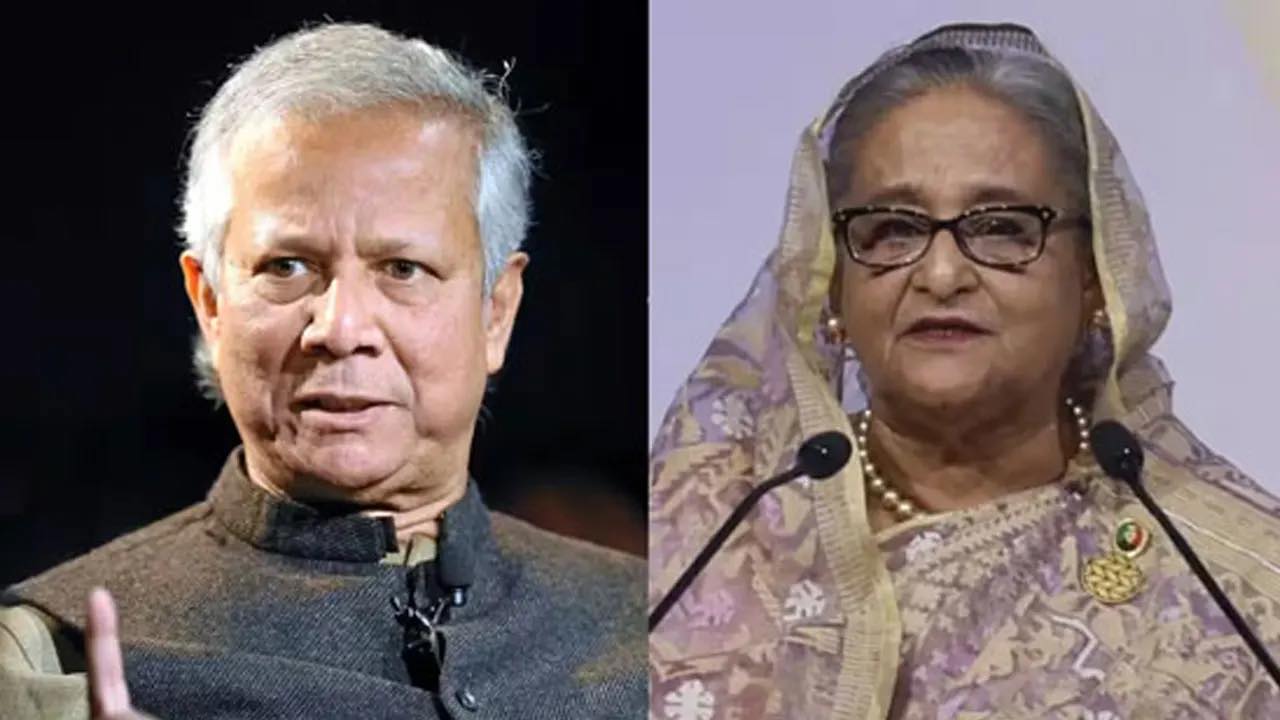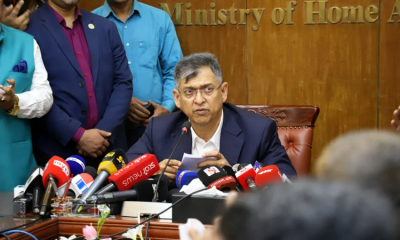In an interview with PTI, the Chief Adviser of the interim government of Bangladesh, Professor Dr. Muhammad Yunus, stated that former Prime Minister Sheikh Hasina should have remained silent while in India until Bangladesh formally requested her extradition.
"If India decides to keep her until Bangladesh asks for her return, the condition should be that she remains quiet," Yunus said.
He described Hasina’s political remarks from India as an "unfriendly gesture," insisting that she should stay silent to avoid discomfort for both countries until Dhaka requests her extradition.
During the interview at his official residence in Dhaka, Dr. Yunus emphasized that while Bangladesh values strong relations with India, New Delhi needs to move beyond the narrative that portrays every political party other than the Awami League as Islamist, and that Bangladesh would turn into Afghanistan without Sheikh Hasina.
"No one is comfortable with her presence in India because we want her back to stand trial. She is there and occasionally speaks, which is problematic. If she had remained silent, we would have moved on, and people would have forgotten. But from India, she is speaking and giving instructions, which no one appreciates," Yunus added.
He was referring to Hasina`s statement on August 13, in which she demanded "justice" and called for those involved in recent "terror acts," killings, and vandalism to be investigated, identified, and punished.
"It’s not good for us or for India. There is discomfort surrounding this," he said.
When asked if Bangladesh had communicated its stance to India, Yunus confirmed that it had been conveyed verbally and firmly that she should remain silent.
"Everyone understands it. We have stated clearly that she should stay quiet. It’s an unfriendly gesture toward us; she’s been given shelter there, and now she’s campaigning from there. She didn’t go there under normal circumstances. She fled following a popular uprising and public anger," he added while speaking to PTI.
Professor Yunus reaffirmed that the interim government is committed to ensuring justice for the people of Bangladesh, insisting that justice requires Hasina`s return to the country.
"Yes, she must be brought back, or the people of Bangladesh will not be at peace. Given the atrocities she has committed, she must be tried publicly here," he emphasized.
Regarding the future of India-Bangladesh relations, Yunus expressed a desire for good ties with India. Still, he insisted that New Delhi must move away from the narrative that only Hasina’s leadership can ensure the country’s stability.
"The way forward is for India to abandon the narrative that everyone except the Awami League is Islamist, and that the BNP will turn the country into Afghanistan. India is captivated by this narrative. They must move beyond it. Bangladesh, like any other nation, is just another neighbor," he said.
Addressing concerns over alleged attacks on Hindu minorities in Bangladesh, Yunus said such issues are being exaggerated as an excuse.
"The portrayal of minority issues is just an excuse," he remarked.
The 84-year-old Nobel laureate emphasized the need for India and Bangladesh to work together to improve their currently strained relationship.
When asked how to improve Indo-Bangla relations, Yunus said both countries must collaborate to strengthen the relationship, which is currently on a downward trend.
"We need to work together to improve this relationship, which is now at a low point," he said.
Speaking on the future of bilateral treaties with India, Yunus acknowledged calls for a review of certain agreements, such as transit and the Adani electricity deal.
"People are saying it`s needed. We will assess what`s on paper and what`s happening in practice. If a review is necessary, we will raise the relevant questions," he concluded.










-20260225072312.webp)







-20260224075258.webp)












-20260219054530.webp)
-20260218060047.jpeg)
